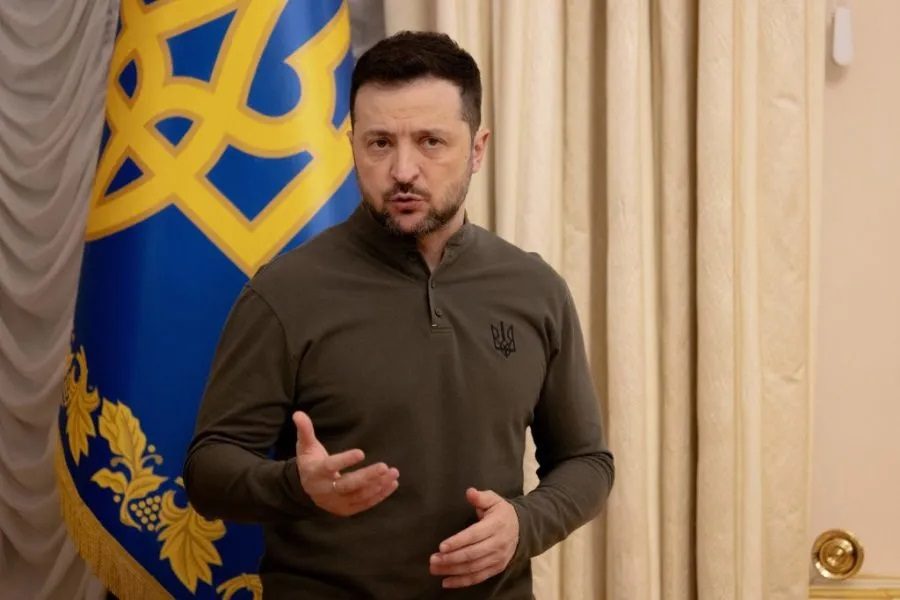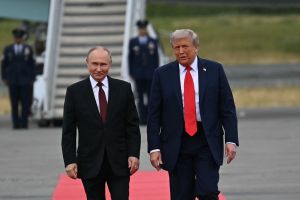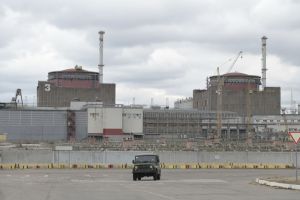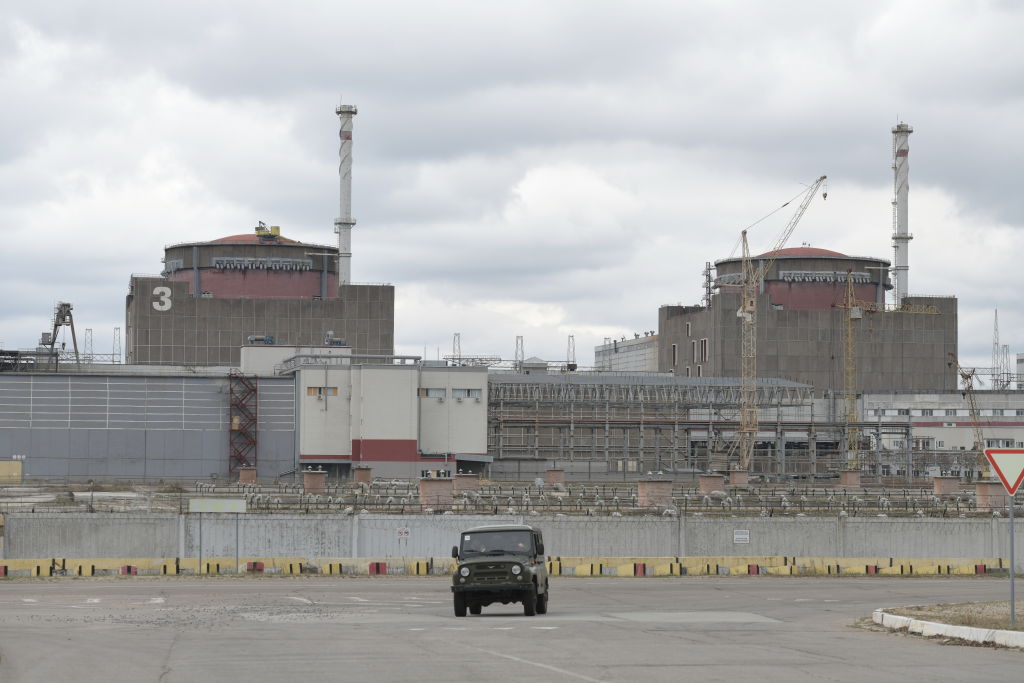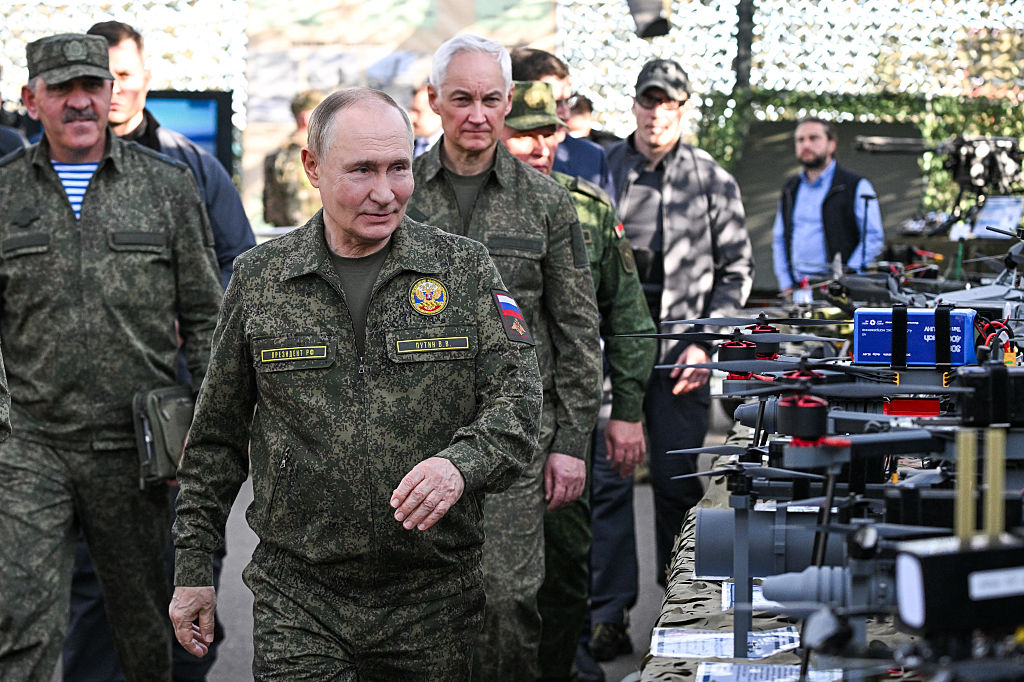For all the efforts on every side to manage expectations, there is a sense that some kind of Ukraine deal — even if more likely a ceasefire rather than some comprehensive settlement — is coming. With the risk that this is, as Vladimir Putin would prefer, a decision made between Moscow and Washington, over Kyiv’s head, the Ukrainians are scrambling to gain traction on the process.
We have already had Volodymyr Zelensky’s suggestion that the United States could get priority investment access to Ukraine’s mineral wealth. Now in a set-piece interview with the Guardian, he has offered a finely-balanced mix of flattery and entreaty in the hope that even a ceasefire would come with proper security guarantees.
To Trump the egotist, Zelensky is offering the role of the one man who can save Ukraine
There are two key points here. A simple ceasefire that silences the guns but leaves both sides’ armies in place poses far worse strategic dilemmas for Kyiv than Moscow. The Ukrainians would scarcely dare break it unless they have incontrovertible evidence that the Russians were in prior breach, for fear of jeopardizing US assistance. This hands the initiative to Putin. He can regroup and rearm his forces and can decide if and when to restart the war, whether in a week, a month or a year — or he could just let the conflict freeze, with Russia in control of almost a fifth of Ukraine.
Meanwhile, Zelensky will face a terrible political and economic dilemma. There is already pressure to allow some demobilization — as the ceasefire lengthens and people begin to think themselves safer, there will be growing political pressure on him to bring at least some of the men back from the front. There is also an economic imperative to get soldiers back into the workforce. If Zelensky refuses, his already-precarious approval ratings will take a serious hit, just at the time when some will start to question the continuation of martial law and thus the suspension of elections. If he accedes to the political pressure, though, then Ukraine’s defenses become attenuated. Although modern surveillance and intelligence systems should give some warning if Russia were planning to reopen hostilities, this is not guaranteed, and may not be long enough to prepare for.
Hence Zelensky’s efforts to ensure that any ceasefire would come with security guarantees. It is clear that for him that has to come from the United States. In his interview, he is unambiguous: “There are voices which say that Europe could offer security guarantees without the Americans, and I always say no. Security guarantees without America are not real security guarantees.”
In response to French president Emmanuel Macron’s suggestion that a European peacekeeping force could be deployed to Ukraine, Zelensky was cautiously scathing, saying that this might be part of an answer “if there will be 100-150,000 European troops” — but he knows perfectly well that this is near enough inconceivable.
The irony is that although the total size of Europe’s combined armed forces (including the UK’s) is around two million men and women, at present they are simply unable to deploy and, crucially, sustain a force of this size on their own. This would be equivalent to the total size of the International Security Assistance Force’s deployment to Afghanistan at its peak, for example. Not only was the bulk of that force American, but the Europeans had to depend on US “enablers,” from logistics to communications. Zelensky was equally skeptical about the United Nations: “I will be open with you, I don’t think that UN troops or anything similar has ever really helped anyone in history.” His key point was simple: “without America this [mission] is impossible.”
In part, this is flattery, stroking Donald Trump’s not-inconsiderable ego with the vision of himself as the only man who can save Ukraine. Yet it also reflects the realities of the situation. Europe’s hollowed-out armed forces cannot project power to an adequate degree, even in its strategic neighborhood, and even were all European states equally willing to contribute (which, it is worth saying, they are not). Besides, while the role of peacekeeping forces is often to be a “glass wall” that an invader will have to smash — to put it bluntly, to kill soldiers from other nations, potentially bringing them into the fight — this is with the hope that it will deter the aggressor. Wrongly or (more likely) rightly, Putin does not seem to fear Europe in a way that he certainly is wary of the United States — and especially so under such an unpredictable president as Trump,
So Zelensky’s strategy seems clear, ahead of this weekend’s Munich Security Conference at which, even if no US peace plan is unveiled, key players such as Vice President J.D. Vance, secretary of state Marco Rubio and Ukraine envoy Keith Kellogg will all be present (as well as Zelensky himself), and crucial eleventh-hour behind-the-scenes negotiations and lobbying will be taking place. To Trump, the CEO of USA Inc., he is offering preferential economic access, from rare earths to reconstruction contracts. To Trump the egotist, apparently eager for a Nobel Peace Prize, he is offering the role of the one man who can save Ukraine.
Meanwhile, in a sly countermove, Moscow has just released one of its hostages, Marc Fogel, an American schoolteacher who has spent three and a half years in prison on minor drug charges. This gave Trump the chance for a flag-waving media opportunity. He responded by saying, “We were treated very nicely by Russia. Actually, I hope that’s the beginning of a relationship where we can end that [Ukraine] war and millions of people can stop being killed.” A Russian commentator drew a parallel with Zelensky’s suggestion that Ukrainian-held territory in Russia’s Kursk region could be swapped for Russian-held land, even though Moscow controls 43,000 square miles of Ukraine compared with Kyiv’s 175 square miles of Russia. “Zelensky can try and outbid Putin, but he doesn’t have deep enough pockets for that.”



